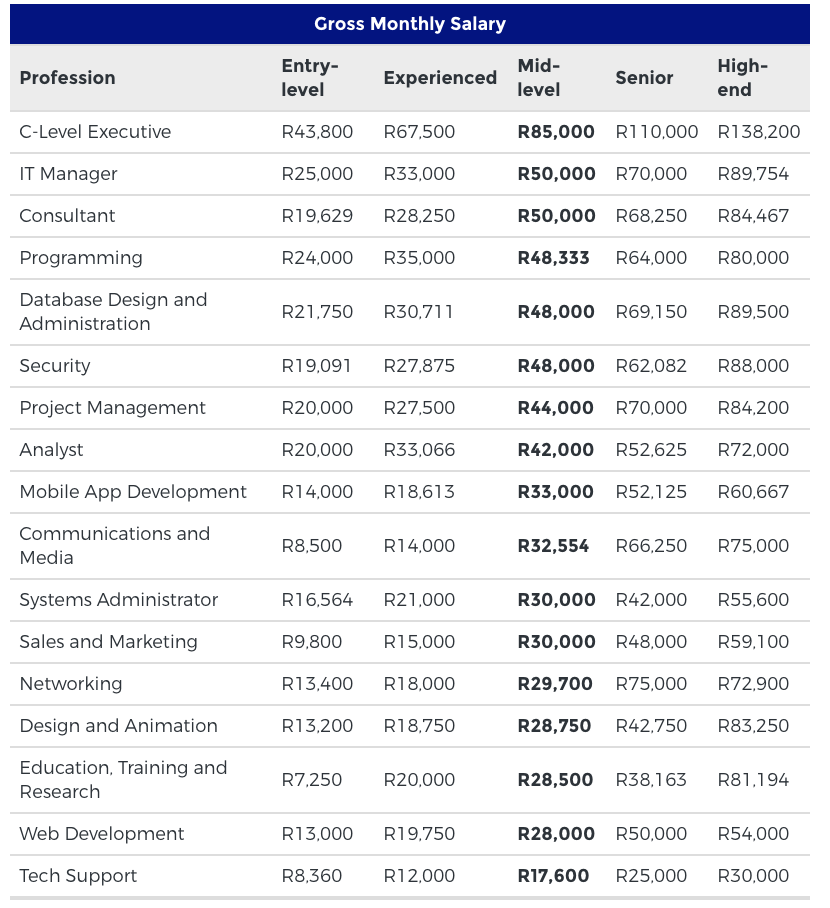The field of Business Intelligence (BI) has experienced significant growth in recent years, and South Africa is no exception. As organizations continue to rely on data-driven decision-making, the demand for skilled BI professionals has increased, leading to a rise in BI salaries. In this article, we will delve into the world of BI salaries in South Africa, exploring the current market trends, factors influencing salary ranges, and the average salary expectations for various BI roles.

Introduction to Business Intelligence
Business Intelligence refers to the process of collecting, analyzing, and interpreting data to inform business decisions. BI involves using various tools, technologies, and methodologies to transform raw data into meaningful insights, enabling organizations to optimize their operations, improve performance, and gain a competitive edge. The BI field encompasses a range of disciplines, including data analysis, data visualization, reporting, and data mining.
BI Salary Landscape in South Africa
The South African BI job market is highly competitive, with a growing demand for skilled professionals. According to various sources, including job portals, recruitment agencies, and industry reports, the average BI salary in South Africa ranges from R400,000 to R1,200,000 per annum, depending on factors such as job title, industry, location, experience, and skills.
Factors Influencing BI Salary Ranges
Several factors contribute to the variation in BI salary ranges in South Africa. Some of the key factors include:
- Job Title: Different BI job titles, such as Business Analyst, Data Analyst, BI Developer, and Data Scientist, command varying salary ranges. For example, a Data Scientist can expect to earn a higher salary than a Data Analyst.
- Industry: BI salaries can differ significantly across industries, with finance, healthcare, and technology sectors tend to offer higher salaries than others.
- Location: Cities like Johannesburg, Cape Town, and Durban tend to offer higher BI salaries than smaller towns and rural areas.
- Experience: As with most professions, experience plays a significant role in determining BI salary ranges. More experienced professionals can expect to earn higher salaries.
- Skills: The type and level of skills required for a particular BI role can impact salary ranges. For example, professionals with expertise in advanced data analytics, machine learning, or cloud computing can command higher salaries.
Average BI Salary Ranges in South Africa
Here are some average BI salary ranges in South Africa, based on national averages and online sources:
- Junior BI Roles (0-3 years of experience):
- Business Analyst: R250,000 – R400,000 per annum
- Data Analyst: R200,000 – R350,000 per annum
- BI Developer: R250,000 – R400,000 per annum
- Mid-Level BI Roles (4-7 years of experience):
- Senior Business Analyst: R400,000 – R650,000 per annum
- Senior Data Analyst: R350,000 – R600,000 per annum
- BI Developer (Team Lead): R500,000 – R800,000 per annum
- Senior BI Roles (8-12 years of experience):
- Data Scientist: R600,000 – R1,000,000 per annum
- Senior BI Manager: R800,000 – R1,200,000 per annum
- Head of BI: R1,000,000 – R1,500,000 per annum
FAQs
- What is the starting salary for a BI professional in South Africa?
The starting salary for a junior BI role in South Africa can range from R200,000 to R400,000 per annum, depending on the job title, industry, and location. - How much can I expect to earn as a senior BI professional in South Africa?
Senior BI professionals in South Africa can earn upwards of R1,000,000 per annum, depending on factors such as experience, skills, and industry. - What skills are in high demand for BI professionals in South Africa?
In-demand skills for BI professionals in South Africa include data analysis, data visualization, machine learning, cloud computing, and programming languages such as Python, R, and SQL. - How do I become a BI professional in South Africa?
To become a BI professional in South Africa, you typically require a degree in a related field (e.g., computer science, mathematics, or statistics), as well as relevant experience and skills in BI tools and technologies. - What are the top industries for BI jobs in South Africa?
The top industries for BI jobs in South Africa include finance, healthcare, technology, retail, and telecommunications.
Conclusion
The BI salary landscape in South Africa is dynamic and influenced by various factors, including job title, industry, location, experience, and skills. As the demand for skilled BI professionals continues to grow, salaries are expected to rise, making BI a lucrative and rewarding career choice. Whether you’re a junior or senior BI professional, understanding the current market trends and salary ranges can help you navigate the job market and negotiate a competitive salary. By developing in-demand skills and staying up-to-date with industry developments, you can position yourself for success in the exciting and rapidly evolving field of Business Intelligence.
Closure
Thus, we hope this article has provided valuable insights into Business Intelligence Salary in South Africa: A Comprehensive Overview. We appreciate your attention to our article. See you in our next article!


